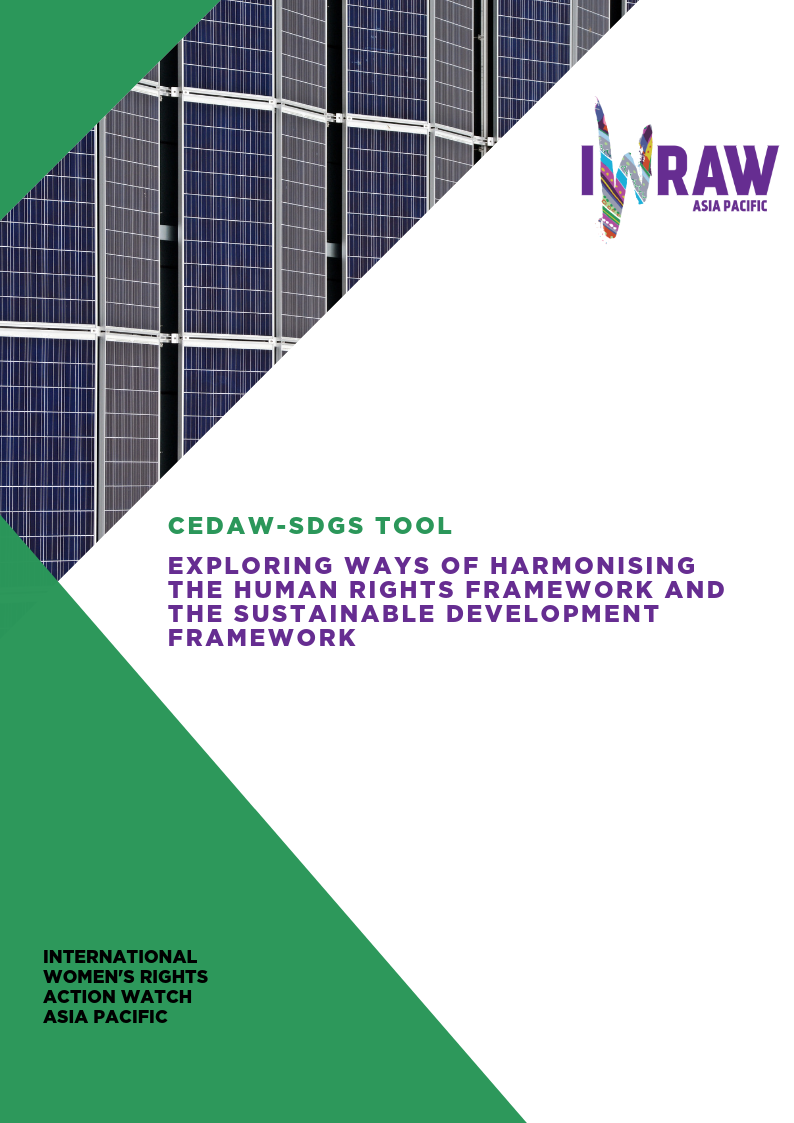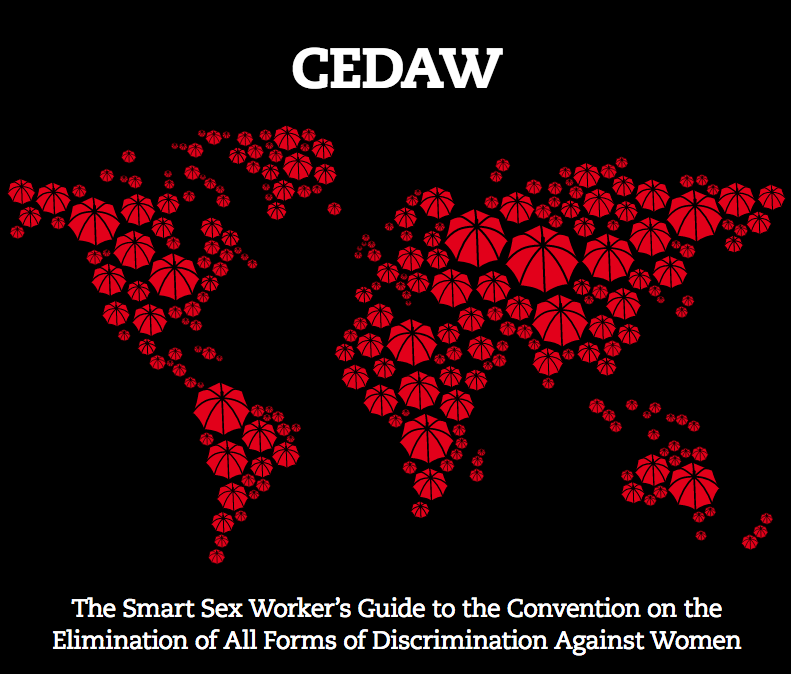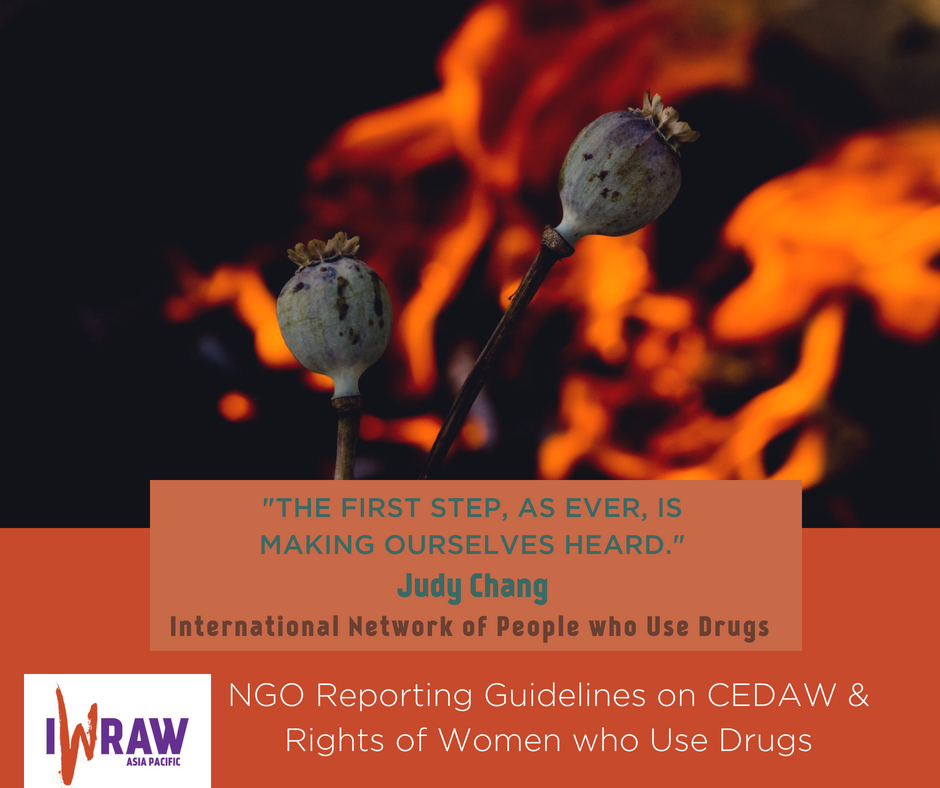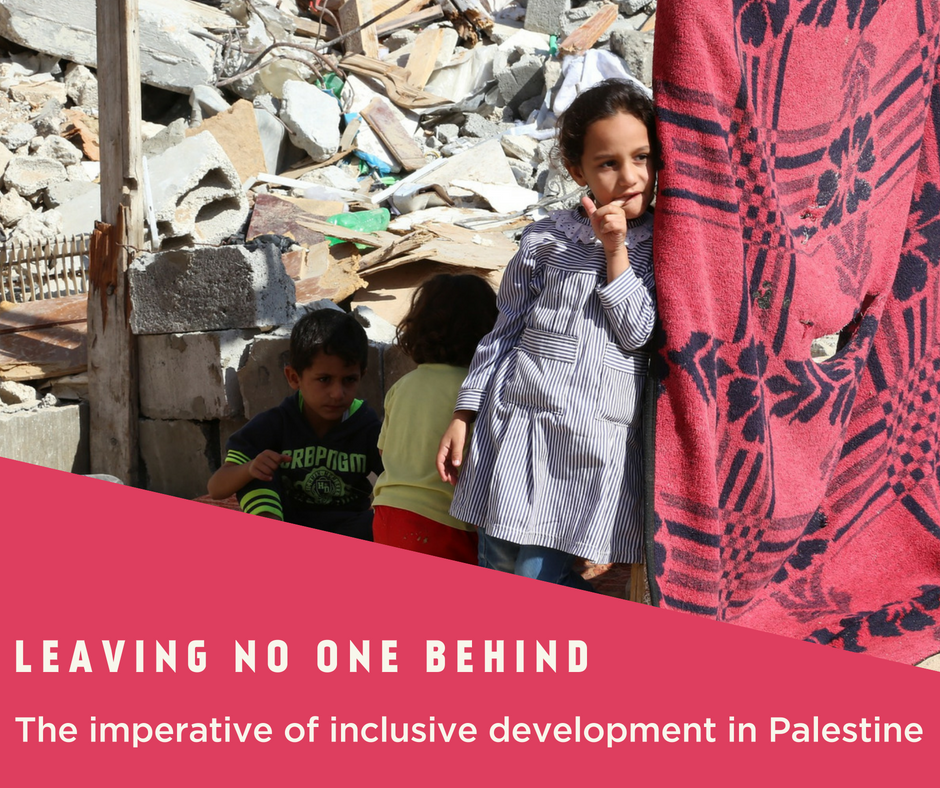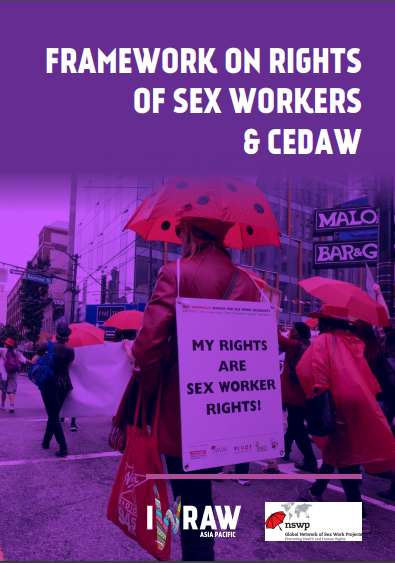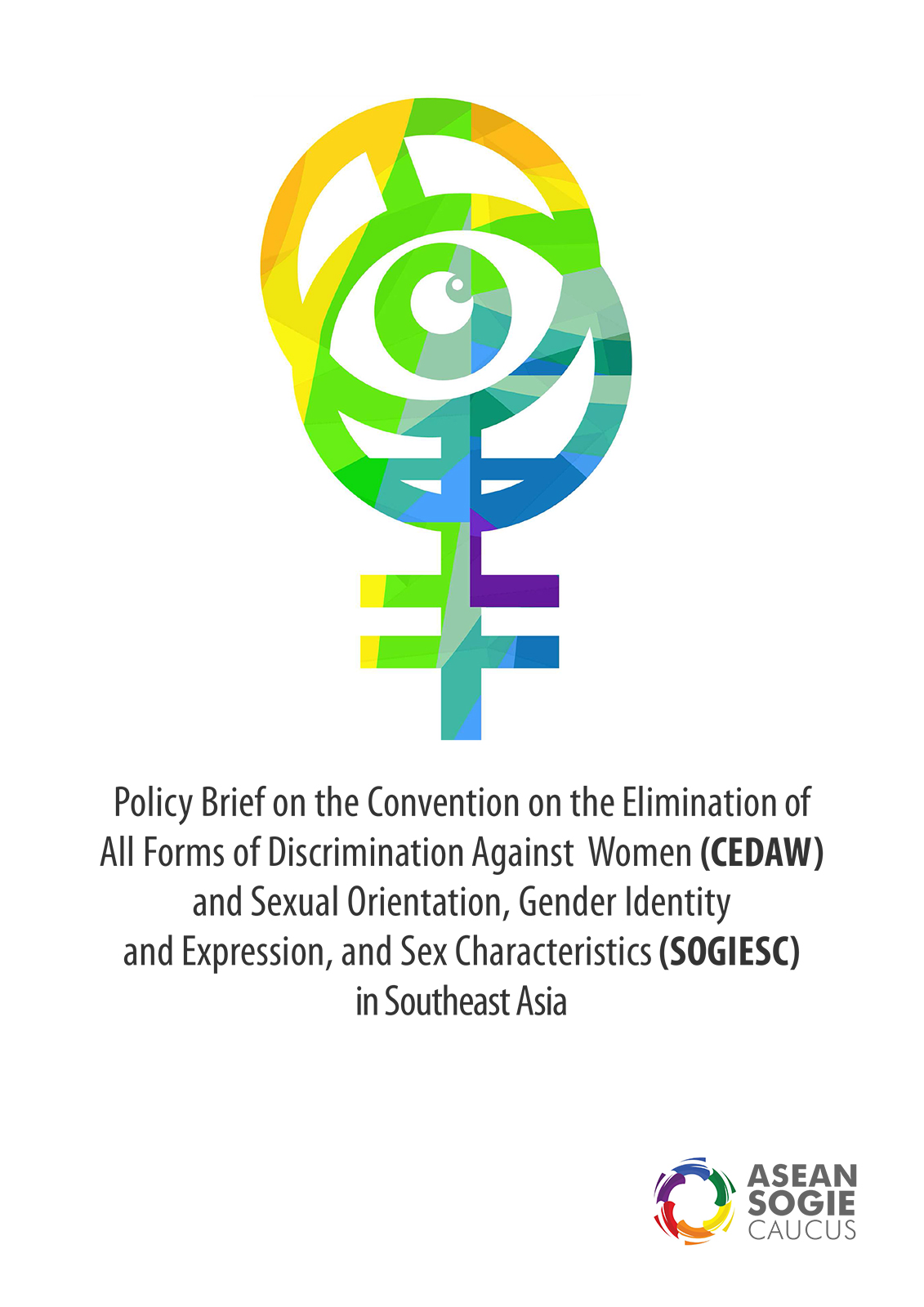Latest Resources
CEDAW-SDGs Tool
October 2018
Welcome to the evolving tool developed by IWRAW Asia Pacific to identify practical ways of linking the human rights framework and the sustainable development framework. While our focus is on CEDAW and the SDGs, this tool can be used to make links between any human rights instrument(s) and the SDGs. See Leaving No One Behind […]
Read MoreThe Smart Sex Worker’s Guide to the Convention on the Elimination of All Forms of Discrimination Against Women
2018
Produced by the Global Network of Sex Work Projects as a result of its collaboration with IWRAW Asia Pacific, this resource explains CEDAW, its importance for the sex workers’ rights movement, and how to engage with the review process, and outlines sex workers’ rights under CEDAW. It is available in Chinese, English, French, Russian and […]
Read MoreWomen’s Rights Beyond the Business Case: Ensuring Corporate Accountability
August 2018
Eight-page PDF from Feminist Group for the Binding Treaty. The briefing paper highlights the importance of a binding gender-just international accountability framework for transnational corporations, as an agenda in its own right and an integral part of a broader effort to achieve women’s economic empowerment and rights, and offers a number of key recommendations in […]
Read MoreStatement by Sachini Perera of IWRAW AP/RESURJ at HLPF 2018 side event
July 2018
What are the key lessons learned about stakeholder engagement in all the processes linked to the High-Level Political Forum (HLPF) on Sustainable Development? Has the HLPF been successful in implementing its mandate? Sachini Perera speaks on behalf of IWRAW Asia Pacific and RESURJ at the HLPF 2018 side event panel discussion, “Review of GA Resolution […]
Read MoreNGO Reporting Guidelines on CEDAW & Rights of Women who Use Drugs
2018
42-page guide in PDF format for NGOs engaging with the CEDAW review process and providing alternative information to the CEDAW Committee on the theme of rights of women who use drugs. With foreword by Judy Chang, executive director of the International Network of People who Use Drugs (INPUD).
Read MoreLeaving No One Behind: The Imperative of Inclusive Development in Palestine
July 2018
Report by the General Union of Palestinian Women (GUPW), the Non-Governmental Women Coalition for the Implementation of CEDAW in the Occupied State of Palestine, with support from IWRAW Asia Pacific (IWRAW AP). This 29-page PDF links CEDAW with the Sustainable Development Goals in the Palestinian context.
Read MoreFramework on Rights of Sex Workers & CEDAW
2018
29-page framework, in PDF format, which seeks to connect human rights principles to the debates around prostitution laws and sex work, and is intended to be a tool to inform the rights discourse on sex work in the context of CEDAW. Also available in Russian.
Read MoreShadow Report Guidelines on CEDAW & Rights of Sex Workers
2018
Eleven-page PDF which aims to provide guidance to NGOs engaging with the CEDAW review process and providing alternative information to the CEDAW Committee on the theme of rights of sex workers. Also available in Russian.
Read MoreSubmission on online violence to the UN Special Rapporteur on Violence against Women
November 2017
Submission on online violence from IWRAW Asia Pacific to the UN Special Rapporteur on violence against women, its causes and consequences. Unpacking key issues on gender-based violence against women in digital spaces and through the use of ICTs under the CEDAW framework, this eight-page PDF highlights normative gaps in legislative frameworks and discusses accountability of […]
Read MorePolicy Brief on CEDAW and Sexual Orientation, Gender Identity and Expression, and Sex Characteristics (SOGIESC) in Southeast Asia
October 2017
19-page PDF from ASEAN SOGIE Caucus which catalogues how SOGIESC has been addressed within the CEDAW reporting mechanisms, provides baseline information on CEDAW for activists based in ASEAN member states, and offers guidance on its application to SOGIESC in human rights advocacy.
Read More

